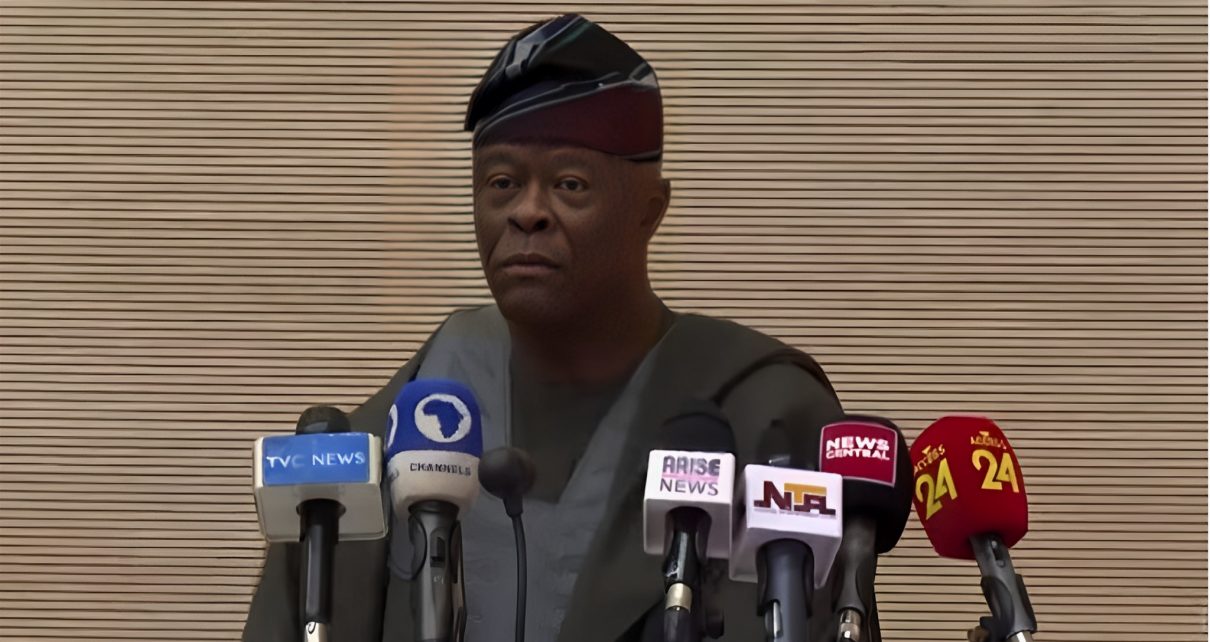In a significant development, Nigeria’s Minister of Finance and Coordinating Minister of the Economy, Wale Edun, has unveiled a comprehensive agenda aimed at transforming the nation’s challenging economic landscape. Speaking during his inaugural press briefing in Abuja, Edun shed light on President Bola Tinubu’s visionary approach and strategies for revitalizing the economy.
Edun outlined several key priority areas set forth by the administration. These core focal points include bolstering food security, stimulating economic growth, harnessing human resources with a focus on inclusivity, empowering women and youth, strengthening the rule of law, and combating corruption.
One notable feature of the government’s strategy is a commitment to transparent and regular performance evaluations for ministers, enabling Nigerians to track their achievements and hold them accountable.
Edun emphasised Tinubu’s overarching vision, which centres on economic growth, job creation, and improving access to capital, particularly through consumer credit, to make economic progress more attainable for the average Nigerian. Food security and poverty eradication stand as pivotal objectives in this endeavour.
The minister acknowledged that Nigeria’s last period of low inflation, stable exchange rates, affordable interest rates, and substantial economic growth occurred a decade ago. He candidly admitted that the current state of the economy falls short of where it should be, with growth barely surpassing population expansion.
Edun pointed to a time during former President Goodluck Jonathan’s administration when Nigeria possessed sufficient foreign exchange reserves to defend its currency, meet fiscal obligations, and sustain economic stability. He underscored the need for the government to facilitate private and foreign investments to supplement its finances effectively.
Tinubu’s agenda emphasises revenue enhancement, aiming to bolster government funding for its expenditures. The approach includes optimising tax collection efficiency rather than raising tax rates. Edun further highlighted the importance of efficient government spending and prudent debt management in achieving these fiscal goals.
Furthermore, President Tinubu aims to foster an environment conducive to investment, enhancing productivity, stimulating economic growth, creating job opportunities, and reducing poverty. To this end, the government intends to review the nation’s tax regime and address the issue of tax avoidance, evasion, and excessive incentives, which currently cost the country an estimated N20 trillion annually.
Taiwo Oyedele, Chairman of the Presidential Fiscal Policy and Tax Reforms Committee, indicated plans to revamp the tax system, eliminate wasteful incentives, and ensure tax revenue growth. The goal is to achieve an 18% tax-to-GDP ratio over the next three years while simplifying the tax structure for the benefit of Nigerian citizens.
In summary, the Tinubu-led government is committed to effective fiscal governance, revenue transformation, and the optimization of non-tax revenues to drive economic growth and inclusive development. Their strategy aims to address impediments to doing business in Nigeria and create a more prosperous and competitive economic landscape.


